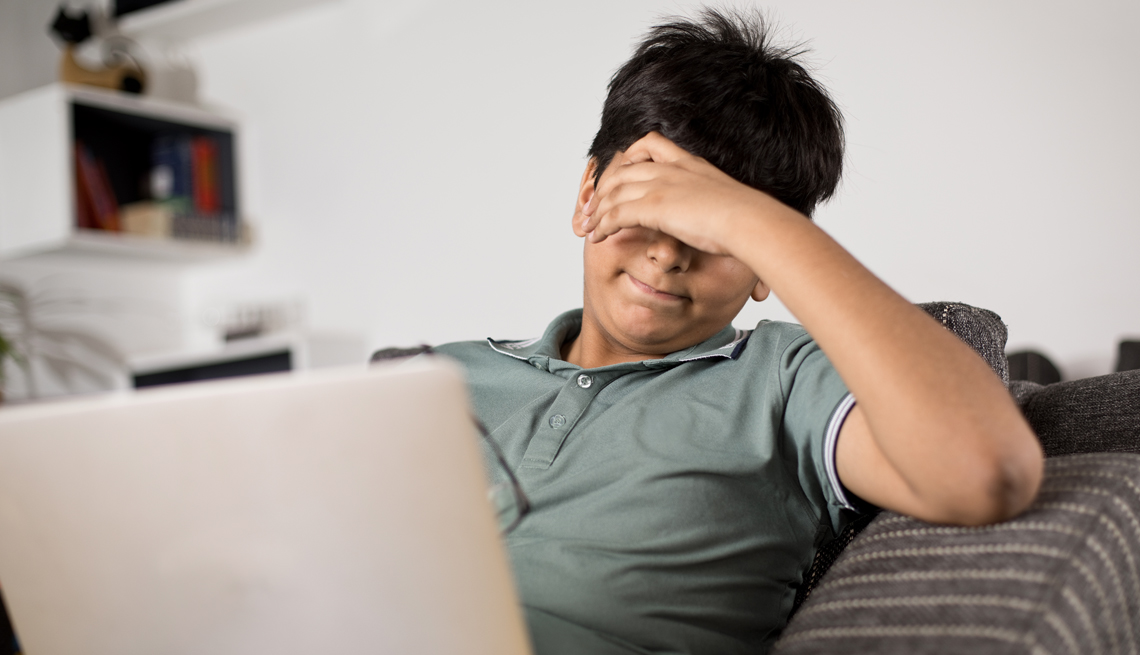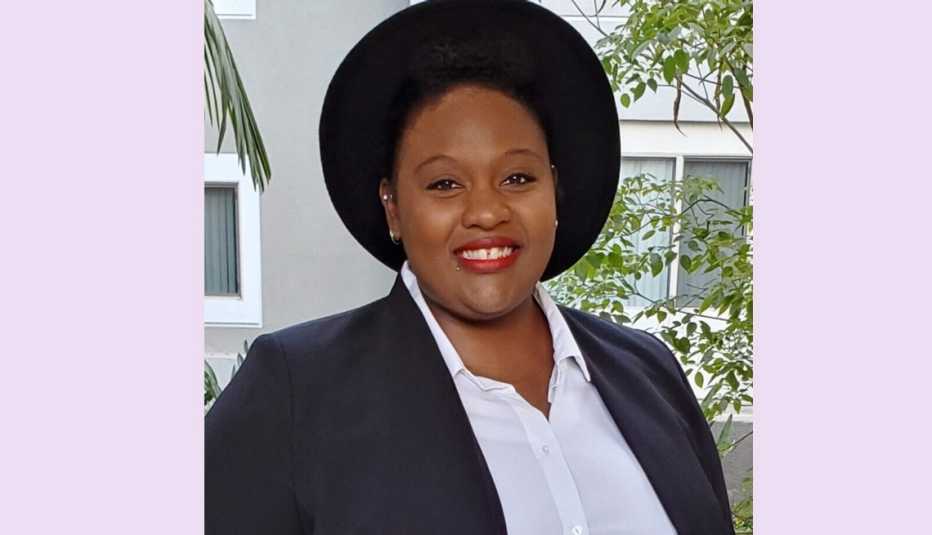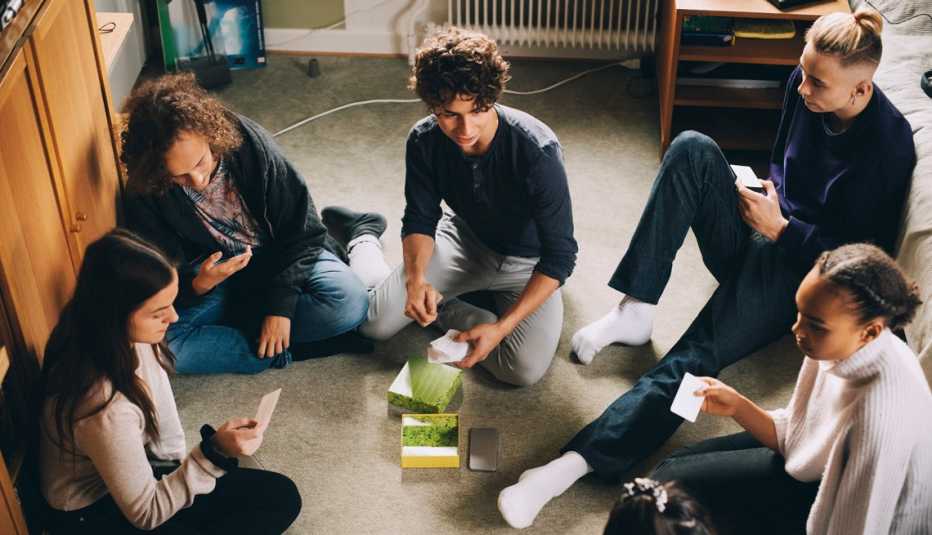AARP Hearing Center
Parenting teenagers has never been easy, but the omnipresence of social media in kids’ lives, combined with the disruptions of the COVID-19 pandemic, has brought daunting new challenges.
Depression and anxiety rates among young people are soaring in the U.S., and while these issues have been a growing problem for over a decade (suicide, on the rise since 2010, became the second-leading cause of death for ages 10 to 24 in 2018), the more recent spike in mental health problems is "inextricably tied to the stress brought on by COVID-19,” according to a recent Declaration of a National Emergency in Child and Adolescent Health from the American Academy of Pediatrics, American Academy of Child and Adolescent Psychiatry, and Children’s Hospital Association.
Parents are desperate to help their struggling children but often don’t know how. We asked top experts in teen mental health to suggest ways to handle some now-common parenting scenarios.
My daughter is posting racy, overtly sexual photos on Instagram. She thinks she’s building her career as an influencer, but I’m afraid it will affect her future college or job prospects. How can I get her to tone it down?


Mehlenbeck: If she's 18, there's not going to be a whole lot parents can do. But if she's under 18, there can be problems on many levels. There’s a chance she could be attracting predators. Teens don't think far ahead, so an argument about college or job prospects is not going to work. On top of that, there's really good data showing that those “likes” on Instagram are incredibly influential and powerful, particularly for girls. This is about taking a step back to talk with your teen about why she has to post sexy, racy photos. Is it that she gets adrenaline from all the likes? Are there other ways to get that satisfaction and excitement? [If she won’t talk to you about it], are there other trusted adults who can talk to her about what is making this so important to her, and whether there are other ways to get to some of the same goals?


Teens in Crisis: A Guide for Parents
Help your kids navigate online threats, skyrocketing anxiety, sexual pressure
My daughter seems much more anxious after spending more than a year at home learning remotely during the pandemic. She’s stopped spending time with friends and avoids the social activities that she used to enjoy. How can I help?


Zigarelli: One of the best things you can do is actually pretty simple: Validate and acknowledge the complex feelings your child is experiencing. Let them know that you are there. Just saying, “I’m here to listen whenever you want to talk” is a powerful way to open the door to communication. When your child does share any of their fears or anxious feelings, try not to respond by going into problem-solving mode, but instead offer a caring space for them to process them.
If these anxious symptoms are interfering with your child’s ability to engage in everyday activities (like school), you might consider offering the opportunity to speak with a counselor or therapist. There are wonderful, evidence-based interventions that work well with children and adolescents to reduce fear and anxious behaviors.
My son says he’s fine, but is showing signs of depression. He is seeing a therapist, but what else can I do? I worry about suicide.


Talib: That you are aware of signs of depression and have already connected your child to a mental health specialist is a huge benefit. Do not be afraid to speak about suicide. You will not inspire a teen to harm themselves by checking in about how they feel. In fact, connecting with your teen and even offering some education that thoughts of suicide are very common among teens right now can be helpful.
The key is to foster open communication. You could do a weekly check-in, at a time and place of your teen's choosing, or over an activity like during meal prep, during a walk or car ride, or over a puzzle. I also suggest you confirm with your child’s therapist that they are screening for suicide, and layer in your pediatrician to do so, as well. You can also speak with your teen's school to see what they are doing in the setting of a suicide attempt. After a Suicide: Toolkit for Schools by the American Federation of Suicide Prevention is a terrific comprehensive resource.
My son has a girlfriend he met online. He spends all his time interacting with her, but they have never met in person. Should I be concerned?


Miller: If they're video chatting, then that's pretty normal. But if they're not seeing each other and it's all through text, then I'd be very concerned. Who is this person really? Does she refuse to meet him in person? There could be all kinds of scenarios where your son could have a girlfriend he's never met in person, and that could be completely fine. Maybe they met in an online group where they share a common interest and she just lives far away. That's completely OK. But if he hasn't seen her face, there’s a possibility that person is catfishing him [which can mean the person is posing as someone else online]. I would recommend watching the movie Catfish together. It's about the reasons people act in certain ways online, on social media and through texting, and what underlies those reasons.














































































